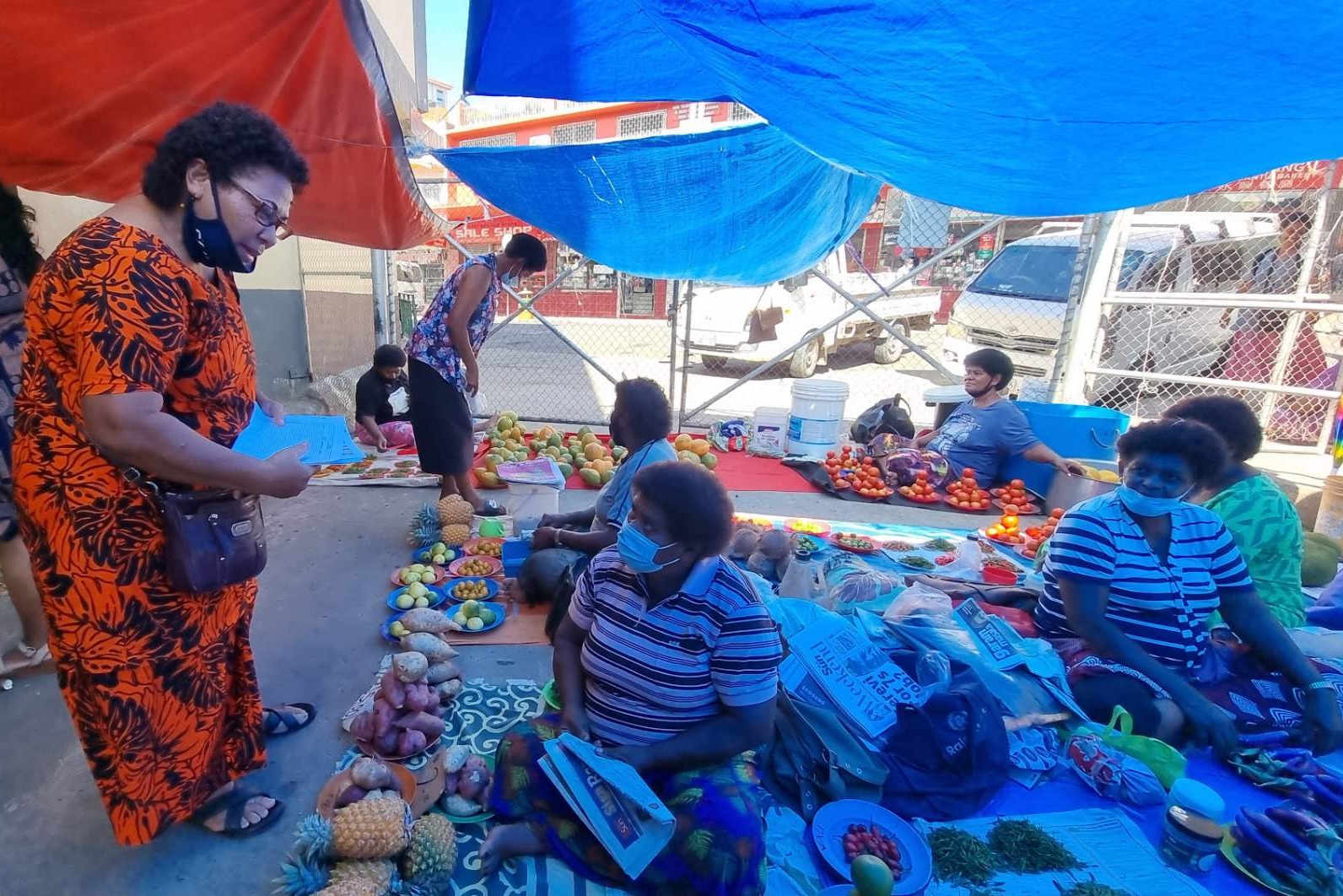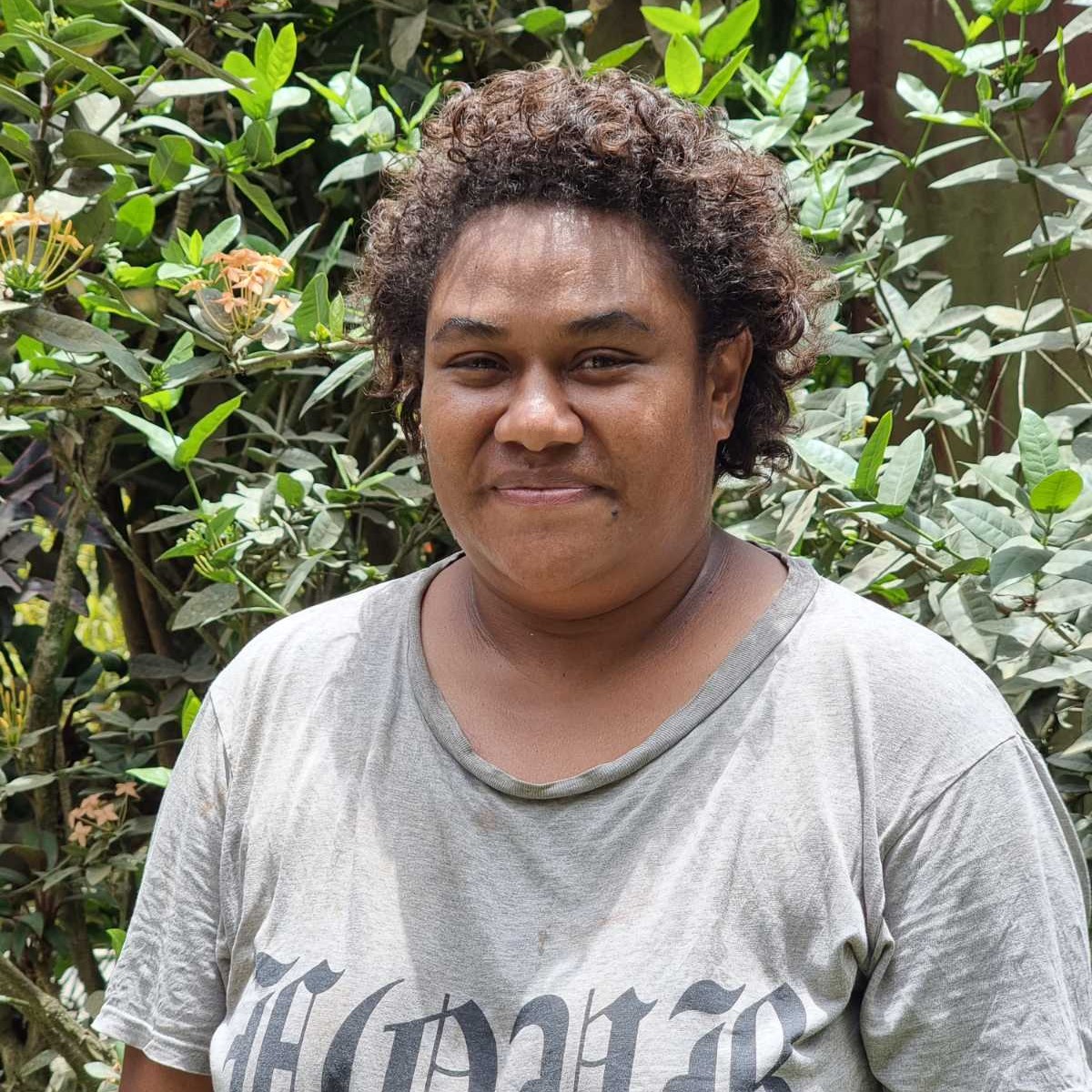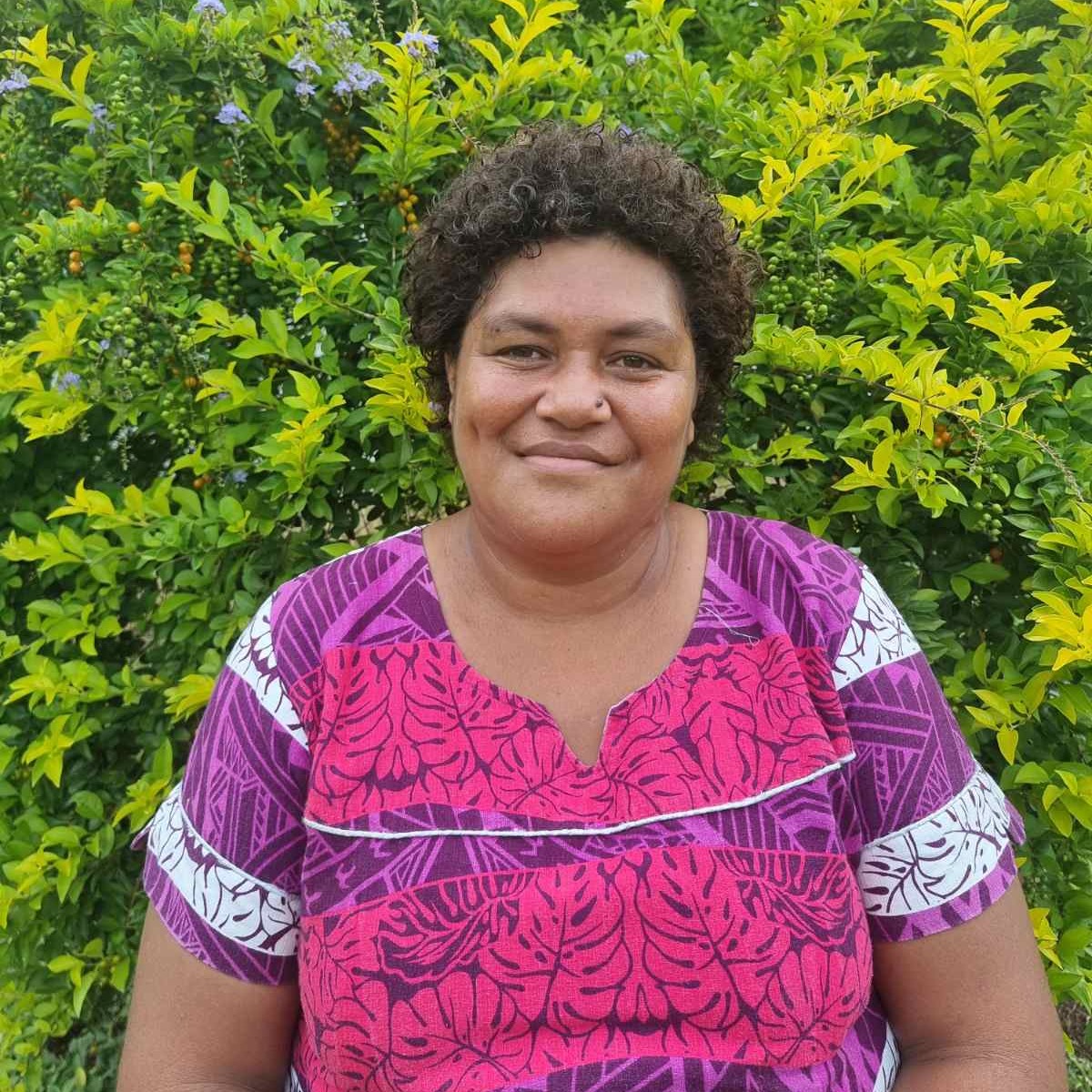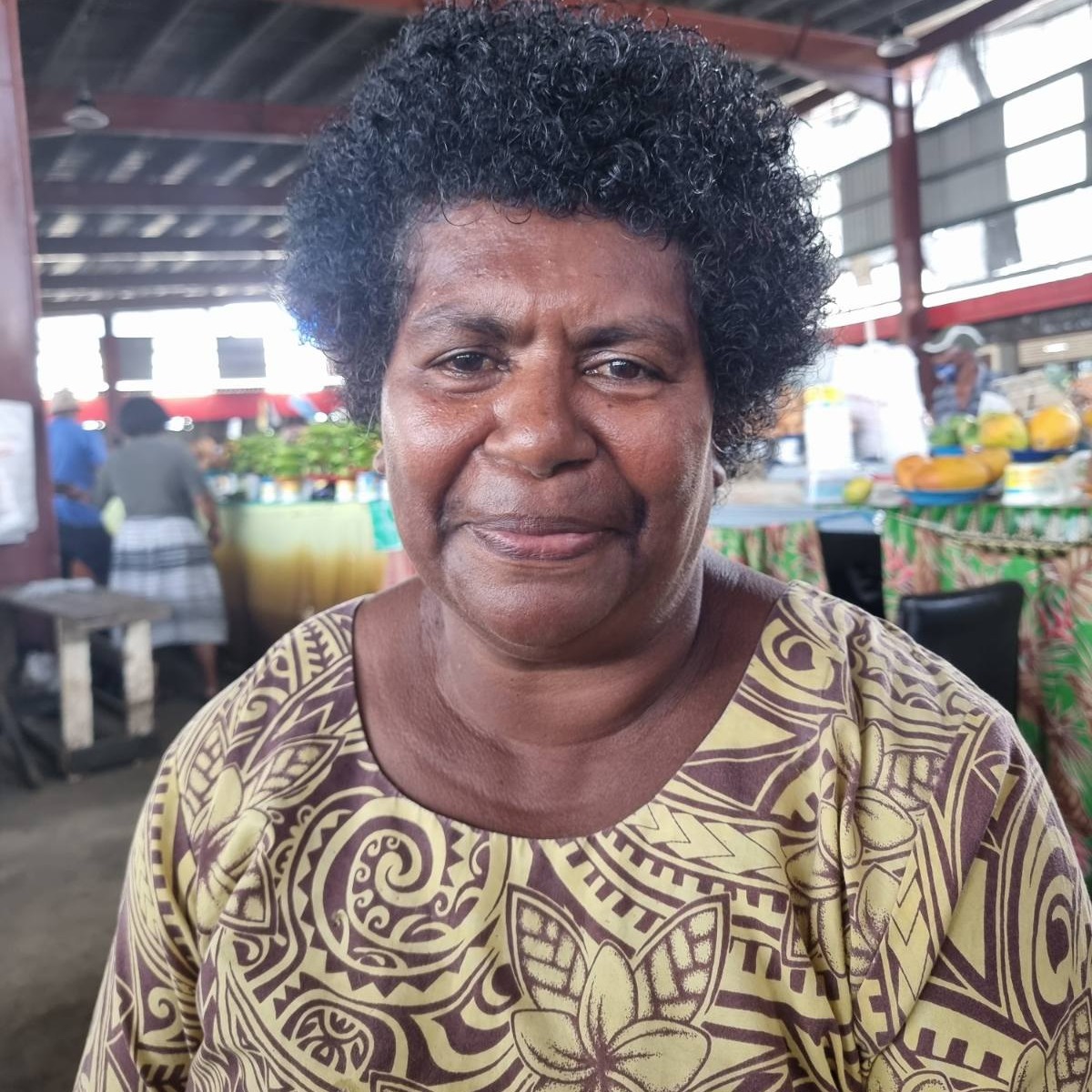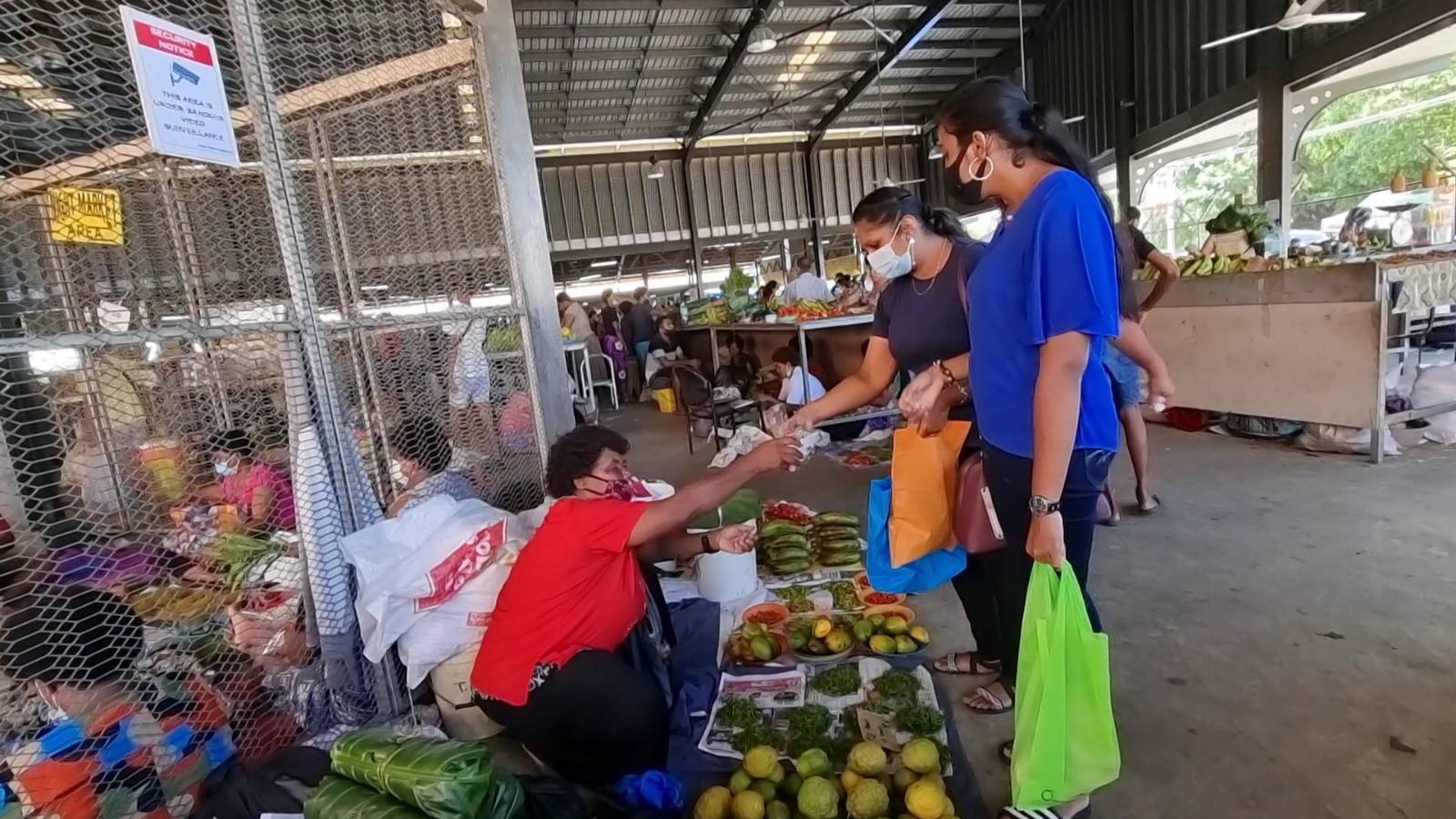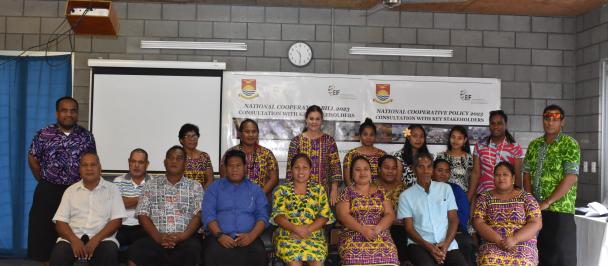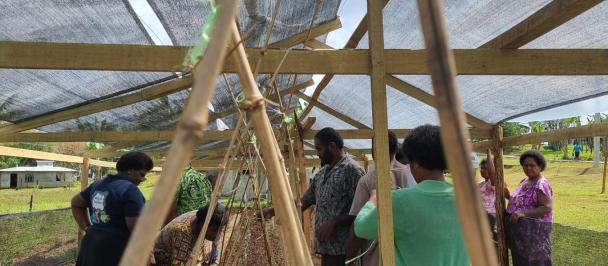Market vendors from the Nausori Highland (Photo: UNDP)
The high cost of transportation for market vendors from their farms to municipal markets is an ongoing challenge. This worsened during the pandemic due to the lockdowns when travel restrictions were put in place. Bus services were suspended, and the cost of transportation to containment borders increased dramatically, making this a very expensive endeavor.
In September 2021, the UN Development Programme (UNDP) through the Informal Economies Recovery Project collaborated with four Market Vendors Association
(MVA) in Nadi, Lautoka, Savusavu and Levuka to assist 150 affected women market vendors. This covered transportation costs from selected villages in Nadi, Lautoka, Savusavu and Levuka to the borders and eventually to municipal markets when border restrictions were lifted.
The MVAs were selected based on their request for transportation assistance as restriction of movements since April made it difficult for farmers to supply from their farms to the borders. Additionally, UNDP also saw the crucial need for farmers to continue a consistent supply of vegetables and crops to the communities and support the farmers to have access to borders and municipal markets during the nationwide lockdown. The assistance was provided for eight weeks from September to November 2021.
The Association coordinated transportation and associated costs for farmers traveling from their villagers to sell their produce at the border during the lockdown and to the municipal markets. They also oversaw the logistical arrangements between farmers and vehicle drivers. This includes arranging and paying for transportation, verifying market produce and liaising with village representatives.
Mere Lewatu of Dreke Village, Navosa (Photo: UNDP)
Moala Bole from Navaga Village (Photo: UNDP)
Kelera Saumaiwai from Namara Village (Photo: UNDP)
Mere Lewatu of Dreke village in Navosa, Nadroga said she enjoys selling at the market but struggled due to the border closure and transportation costs. "The cost of delivering our goods to the market is entirely determined by the volume of cargo loaded onto the trucks,” she said.
The mother of two expressed gratitude for UNDP's assistance during these trying times, noting that she was able to save additional funds to keep at home, which came in handy during a family emergency or when something was needed to be purchased urgently.
Moala Bole, a widower from Navaga village in the Nausori highlands, said selling at the market is a daily struggle. “If I have to go to the market on Thursday or Friday, I usually prepare my root crops and vegetables two days in advance, but you’re lucky if you have a horse to transport your produce from the farms to the village before the carrier arrives; if you don’t, carrying it on your own will be a struggle.”
The mother of five said since receiving assistance from UNDP, they are happy and relieved because their transport costs are covered. “The support has made me extremely happy because it feels as though a heavy burden has been lifted from our shoulders as it has benefitted our families tremendously. I’ve been able to purchase more groceries for my family.”
Kelera Saumaiwai, 51 of Namara village, Nalawa, Ra said six women in her district benefited significantly from the assistance. “Many women in the village struggle with transportation costs just to sell at the borders and in the market and in some cases, they don’t make it to the market due to the high costs”.
UNDP Markets for Change & Multi-Partner Trust Fund Project Manager, Vilisi Veibataki said, “During the pandemic, there were a lot of disruptions in the food chain supply which caused a total shift in priorities by farmers as they faced challenges in accessing the markets. This was an opportunity for UNDP to explore an alternative approach to ensure there was continuous support to farmers during the pandemic.”
Nadi market vendors (Photo: UNDP)
Ms. Veibataki added, “The support strengthened the contribution of the vendor farmers to the economic and social development of Fiji as communities were reached with supplies of fresh vegetables and root crops, sources of livelihood enhanced, and food security addressed while contributing to the overall improvement in the livelihood of the informal agriculture informal agriculture sector.”
She highlighted that UNDP would continue to support farmers to improve their agricultural productivity, product development and sales, which will in term contribute to their livelihood.
This assistance is also aimed to address SDG 1 which is to end poverty in all its forms everywhere and SDG 8 on promoting sustained, inclusive, and sustainable economic growth, full and productive employment, and decent work for all. More importantly this activity aims to address the economic empowerment of rural women.
The Informal Economies Recovery Project aims to engage with the large number of self-employed that have turned to the agriculture sector or are part of the agri-supply chain in order to support their livelihoods and is funded by the UNCOVID Multi-Trust Partnership Fund, jointly implemented by ILO, UNESCO, UNDP, and IFAD.
Contact information
Akosita Ratumaimuri, Communications & Research Officer - Inclusive Growth Programme; email: akosita.ratumaimuri@undp.org

 Locations
Locations